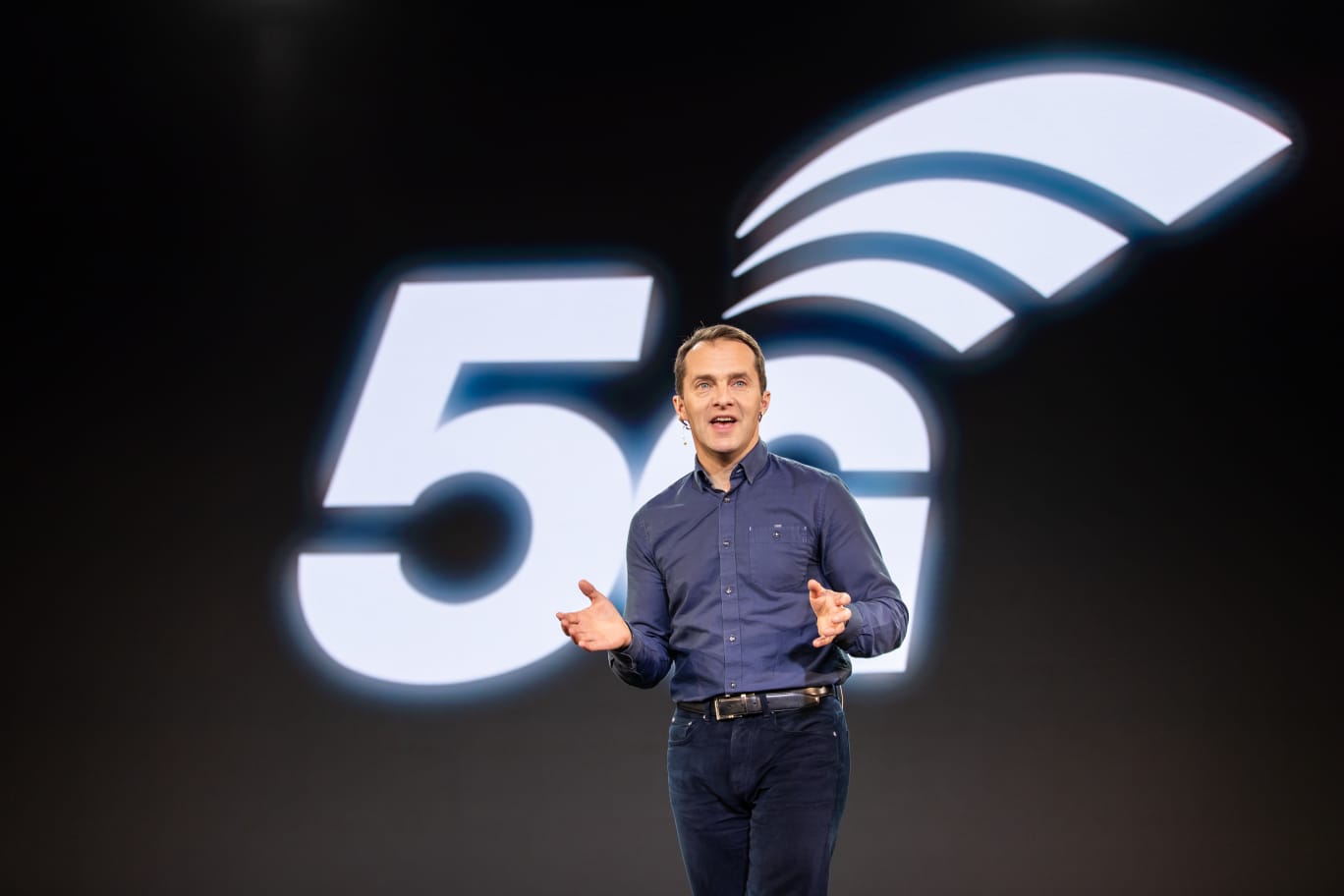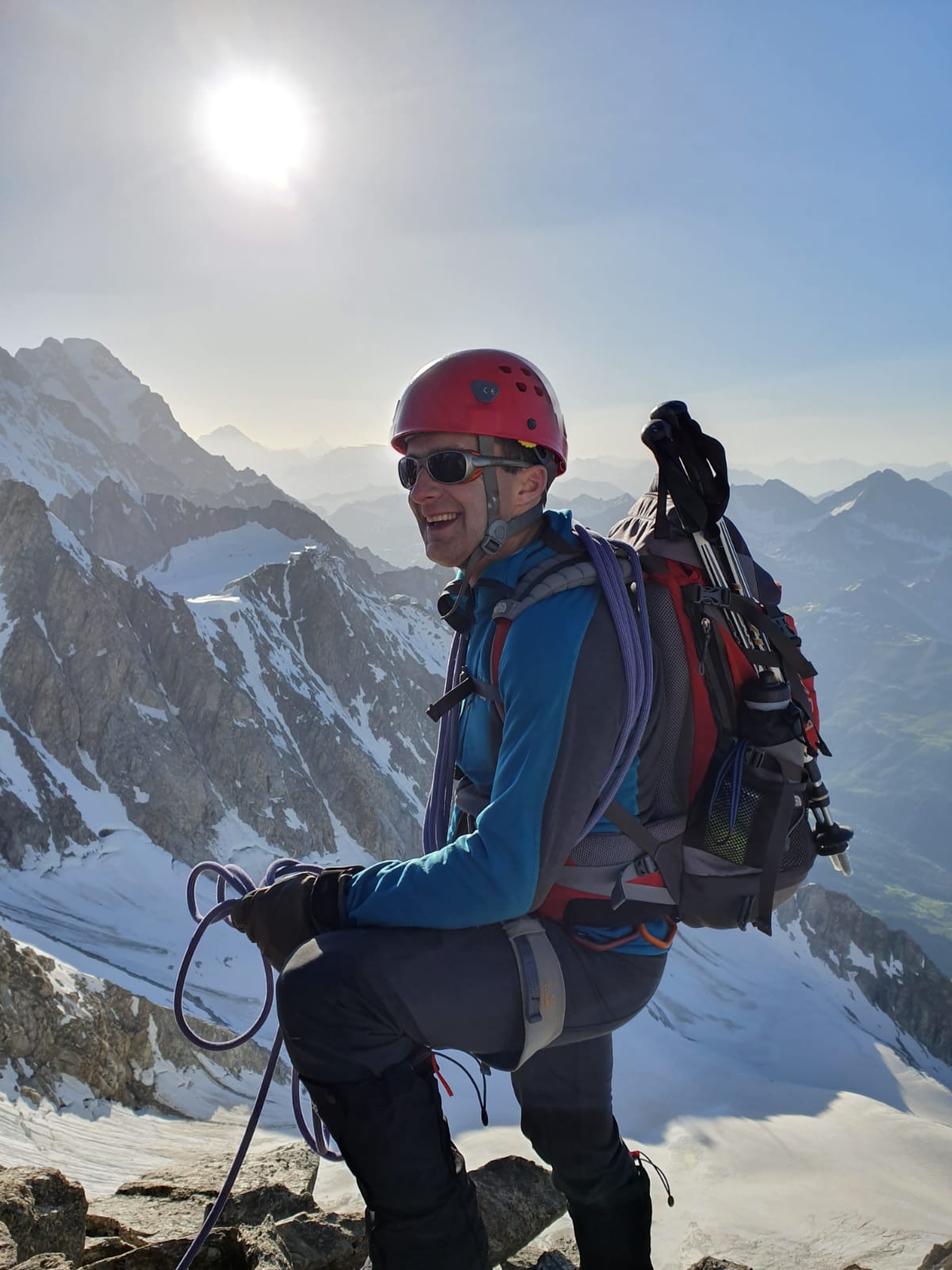How the corporate vice president of Samsung UK went from selling socks to smartphones
After an early traumatic experience, Conor Pierce went on to follow his motto: ‘Do what you can’t.’ This led him all the way to the top with Samsung, writes Andy Martin


He calls it “positive stress”. Conor Pierce lives five minutes from the beach in Dublin and every day, no matter the weather, he goes out swimming in the Irish Sea, in the middle of winter. “I cheat, though,” he says. “I take a two-litre flask of hot water with me to pour over my head when I get out. I have to survive.” His slogan is “Do what you can’t”, which works well for him as corporate vice president of Samsung for UK and Ireland, and evangelist of the transition to 5G.
He has had to overcome his share of obstacles. Brought up in Shankill, south of Dublin, at the age of 10 he was diagnosed with a form of juvenile arthritis that put him on crutches for a year. “Swimming took over my life,” he says. From 11 to 16, he would spend hours in the pool every day with the Trojan Swimming Club, doing a mile just for a warm-up, and specialising in butterfly. “You’re so tired after that,” he says, “you don’t worry too much about missing out on the usual adolescent activities.”
A formative trauma in his early life occurred when his brother Patrick was severely injured in a car accident. “He had to reconstruct from scratch, but his character remained intact. When you see what he overcame, you realise you can do anything. When someone says “I can’t do it”, that gets on my wick. There is always a way.”
His other hero is Ernest Shackleton, the Anglo-Irish Antarctic explorer of the first decades of the twentieth century who steered his whole crew to salvation after their ship was crushed in pack-ice. Pierce approves of his attitude that “obstacles are just things to overcome”, but he has reservations about the ad Shackleton is supposed to have posted in a newspaper: “Men wanted for hazardous journey, small wages, bitter cold, constant danger… safe return doubtful.” “He lacked diversity – he wanted only like-minded people. And all men. You need lots of different ideas and opinions. He got everyone back but he might have had better options. With more diversity in gender and experience you get a better solution.”
I try to carve out 10 days in the year to go dog-sledding in the Arctic or trekking across the Sahara
As a student, Pierce worked his way through University College, Dublin, selling socks from a stall in the market, inspired by his father who ran a hosiery company. In 1989 he set off across America, hit the west coast, and then kept on going right across the Pacific, island-hopping from Tahiti to Fiji. When he got back he took a job as an insurance salesman. “I got nowhere fast,” he says. “I went round schools trying to sell life insurance to teachers and I was focused on my message to them – and not listening enough.”
He did a stint on the factory floor with his father’s company. He was literally sweeping the floor. “I learned everything you can do with a sock,” he says. “You get to know people that way. You realise that everyone plays a crucial part, no matter where they are in the company.”
But then Pierce “fell in love” with phones and he ditched the socks. He joined Ericsson in 1997 after doing a master’s at Harvard Business School, and went from there to Nokia in 2001. “I started big and chunky. Then switched to the flip phone with an aerial.” He stayed with them for eleven years, working in the UK, Ireland, and Dubai, where they were still building the Burj Khalifa, the world’s tallest tower. And when I say “they”, I mean Samsung. Until speaking to Conor Pierce, I had no idea that Samsung built stuff bigger than things I can put in my pocket or on my wrist. “They had to figure out a way to pump the cement up to the very top without it drying,” he says.
His biggest challenge was Turkey where, he says, the Nokia team of 50 “had lost hope”. He describes it as being “like landing on a supertanker in the middle of the ocean with no power and where the crew have given up – and then you’re told, ‘Fix that!’” Eventually they became like his “second family”. “We celebrated the small successes and they learned to believe.”

Six years ago, after a spell at Microsoft, Pierce joined Samsung – perhaps inspired by seeing them pump all that cement up the Burj Khalifa. I knew that they had brought out the world’s first folding phone. But among all the other things I didn’t know about Samsung, I learned that the name means “Three stars” (or “tristar”) in Korean, and that the company was founded as long ago as 1938. Now they produce not just phones and tablets and smart watches, but humble kitchen appliances like washing machines and fridges. Pierce’s vision of the 5G future is that you pick up your Galaxy S21 phone (or whatever the latest model is) and then control your whole house with a couple of clicks on the “SmartThings” app. Or possibly build the world’s new highest tower.
Right now Pierce has three kids at home: “The broadband is getting a good workout,” he says. “I commute from the kitchen to the landing.” But when lockdown allows, he is still leading a life of adventure. Last year he took a dozen people off to climb five peaks in 48 hours in England, Scotland and Ireland. Another time it was seven peaks (over 4000 metres) in seven days. In other years he has climbed Mont Blanc and Kilimanjaro. “I try to carve out ten days in the year to go dog-sledding in the Arctic or trekking across the Sahara,” he says. “I feel the need to keep challenging myself.”
“5G will change everything,” says Pierce. “Everything will be connected.” Even so, he allows that “there are times when you have to be totally disconnected”. Another surprising thing about Pierce: when people apply to go on one of his wild journeys into the unknown, he asks them to write to tell him about something they thought they couldn’t overcome, but did. But it has to be a letter, written by hand. Not an email, not a text. No phones. Strictly old-school. Ernest Shackleton would have approved.




Join our commenting forum
Join thought-provoking conversations, follow other Independent readers and see their replies
Comments